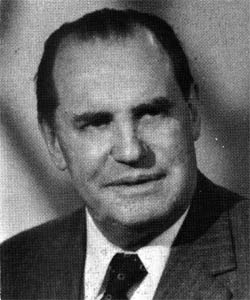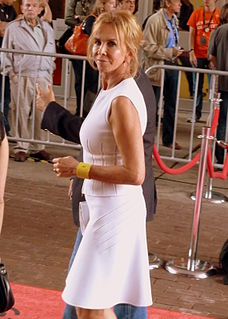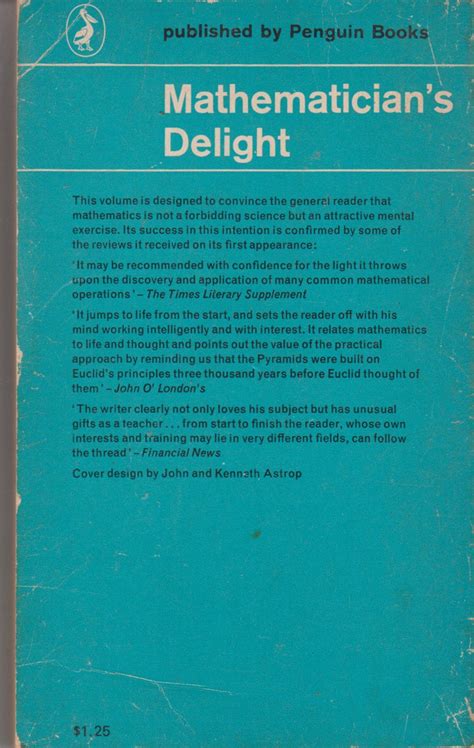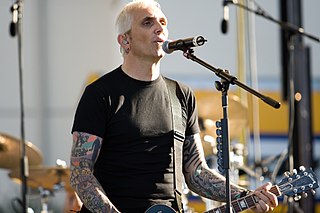A Quote by Jean Dieudonne
It is indubitable that a 50-year-old mathematician knows the mathematics he learned at 20 or 30, but has only notions, often rather vague, of the mathematics of his epoch, i.e. the period of time when he is 50.
Related Quotes
There's still this idea that women are over by the time they are 40, so that they can't play the love interest opposite a 50-year-old man. George Clooney is 52, but he's always on the arm of a thirt-something actress. He gets Vera Farmiga. You don't get a 50-year-old woman on the arm of a 30-year-old guy.
I do not remember having felt, as a boy, any passion for mathematics, and such notions as I may have had of the career of a mathematician were far from noble. I thought of mathematics in terms of examinations and scholarships: I wanted to beat other boys, and this seemed to be the way in which I could do so most decisively.
To criticize mathematics for its abstraction is to miss the point entirely. Abstraction is what makes mathematics work. If you concentrate too closely on too limited an application of a mathematical idea, you rob the mathematician of his most important tools: analogy, generality, and simplicity. Mathematics is the ultimate in technology transfer.
If you ask ... the man in the street ... the human significance of mathematics, the answer of the world will be, that mathematics has given mankind a metrical and computatory art essential to the effective conduct of daily life, that mathematics admits of countless applications in engineering and the natural sciences, and finally that mathematics is a most excellent instrumentality for giving mental discipline... [A mathematician will add] that mathematics is the exact science, the science of exact thought or of rigorous thinking.
We have made a huge amount of progress over the last 50 years by enabling trade, by enabling kind of collaboration and learning. And actually, in fact, when you look at your average 30-year-old today, they're much better off than a 30-year-old 20 years ago, 30 years ago, because of progress in technology and health care and all the rest of this.
I don't think that everyone should become a mathematician, but I do believe that many students don't give mathematics a real chance. I did poorly in math for a couple of years in middle school; I was just not interested in thinking about it. I can see that without being excited mathematics can look pointless and cold. The beauty of mathematics only shows itself to more patient followers.
As the population is, in general, aging, there is more interest in what a 50-year-old, a 60-year-old, a 70-year-old, an 80-year-old is like. And one of the things that just naturally started to happen as I got older - and I could feel younger people looking up to me in a certain way and wanting to know things that I knew - I got interested in the women, in particular, who were 20 years older than me. Because I understand in a way that I didn't 20, 30 years ago, how much they know.
The press still thinks [global warming] is controversial. So they find the 1% of the scientists and put them up as if they're 50% of the research results. You in the public would have no idea that this is basically a done deal and that we're on to other problems, because the journalists are trying to give it a 50/50 story. It's not a 50/50 story. It's not. Period.
One cannot inquire into the foundations and nature of mathematics without delving into the question of the operations by which the mathematical activity of the mind is conducted. If one failed to take that into account, then one would be left studying only the language in which mathematics is represented rather than the essence of mathematics.
On foundations we believe in the reality of mathematics, but of course, when philosophers attack us with their paradoxes, we rush to hide behind formalism and say 'mathematics is just a combination of meaningless symbols,'... Finally we are left in peace to go back to our mathematics and do it as we have always done, with the feeling each mathematician has that he is working with something real. The sensation is probably an illusion, but it is very convenient.





































